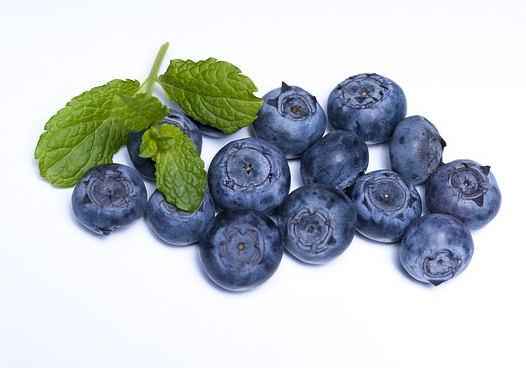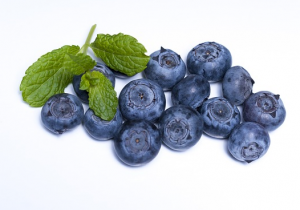Fruits, who doesn’t love them? Especially when we are talking about these antioxidant rich berries. Who can resist blueberries? Would your furry pet enjoy them too? Can guinea pigs eat blueberries? Let’s find the answer to that.
We know how great blueberries are in a delicious dessert or even on their own, but can you give them to your pet? Are blueberries good for the health of your pet or do they have the ability to cause some unexpected health issues?
Can Guinea Pigs Eat Blueberries – Only in Moderation
Blueberries are considered to be a super-food for humans, but does this principle apply to our cavy friends too? They are high in vitamin C, which is great for guinea pigs since they are not able to synthesize this vitamin on their own. The disadvantage, just like in the case of any other fruit is that they contain large amount of sugar.
Guinea pigs can eat blueberries, but only in moderation. Keep in mind the fact that even though they are rich in vitamin C, these berries do contain a lot of sugar and may create numerous health issues for your pet if fed in excess.
Another aspect you should keep in mind is that guinea pigs can be quite persuasive. What does this mean? It means that since they are so cute, they can easily persuade their owner into giving them more of the food they like. We are talking about goodies here, those treats that should be given in moderation. Pet owners, however, need to learn to be disciplined in this area and not to fall into the trap of their cuteness.
Everything has to be done in moderation, especially when it comes to the food you are giving to your guinea pig. One of the best things you could do for your cavies is to make sure that they have the best hay they could chew on and that the fresh water is always reachable for them. The vitamin C-fortified pellets should also be present and after that you can start thinking about giving them other treats, such as blueberries.
Nutritional Facts of Blueberries
To get more information in this area, we thought that it might be useful if you could have a clear picture of the nutritional values these small fruits contain:
I cup of blueberries contain:
- Calories: 84
- Total fat 0 g
- Dietary fiber 4 g (14 %)
- Sugars 15 g
- Protein 1 g
- Total Carbohydrate 21 g (7 %)
- Vitamin C 14 g (24 %)
- Vitamin K 28 mcg (36 %)
- Cholesterol 0 mg
They contain some dietary fiber, but also sugar. They are low in proteins, fats, vitamin A, vitamin B2, vitamin B1, vitamin B5, vitamin B3, vitamin B9, vitamin B6 and vitamin E. On the other hand, they are rich in vitamin K, vitamin C, and manganese. Blueberries also contain small traces of all important minerals, including zinc, calcium, sodium, phosphorus and iron.
There are no great amounts of fats and phosphorus and there are, certainly, not even small amounts of oxalate acid. This is great, as this compound can combine with calcium and form stones in your little buddy’s body. However, blueberries contain a lot of sugar, which can be bad for your pet if you are feeding him these fruits excessively. That’s why, the best piece of advice we can give you is to feed this treat moderately.
Health Benefits of Blueberries
Laboratory animal studies have shown that blueberries help with cognitive benefits, eye health, cardiovascular health, and anti-cancer benefits (breast, colon, esophageal, and small intestine cancers).
Researches have concluded that you can easily freeze fresh blueberries without damaging their anthocyanin antioxidants. It’s best to freeze them at 0°F (-17°C) or lower for 3-6 months. Recent studies have shown no notable lowering of overall antioxidant content. However, avoid giving your pet frozen blueberries. Just thaw them first. Frozen foods, in general, are not recommended for guinea pigs. Their digestive system is sensitive and cold foods may lead to diarrhea or upset stomach.
For example, the best thing you can do is to feed blueberries to your pet only once or maybe twice a week. This way, you will be able to lower the chances of your cavy getting any conditions caused by the high amount of sugar they contain. Also, since blueberries are small fruits, you don’t need to chop them, you can give them whole for your pet to enjoy them.
You can also feed your beloved guinea pig dried blueberries , but you should know that, in this case, the restriction is even greater. They contain even more sugar than the raw ones, so the trouble is double. Make sure you will not make a habit out of this and give your piggy dried blueberries only once in a blue moon.
Conclusion
Coming back to the original question, yes guinea pigs can eat blueberries. They certainly are allowed to eat blueberries as long as you control the amount. Couple blueberries a week will be enough. Moderation is key here. Moreover, be cautious with dried blueberries since these have high sugar content which is harmful for your cavy friends. It’s best to stay away from these treats.
Blueberries can be nice and sweet treats to give your pet occasionally. They will most likely love these tiny fruits, but this does not mean your cavies should be getting as much as they would want to. Additionally, always introduce new foods gradually and observe your cavies couple hours after feeding new foods. If your guinea pig’s stool becomes soft or he experiences diarrhea, stop feeding him blueberries immediately.
Related articles:
References:
http://www.onlineguineapigcare.com/can-guinea-pigs-eat-blueberries/
http://www.whfoods.com/genpage.php?tname=foodspice&dbid=8
http://nutritiondata.self.com/facts/fruits-and-fruit-juices/1851/2









Leave a Comment